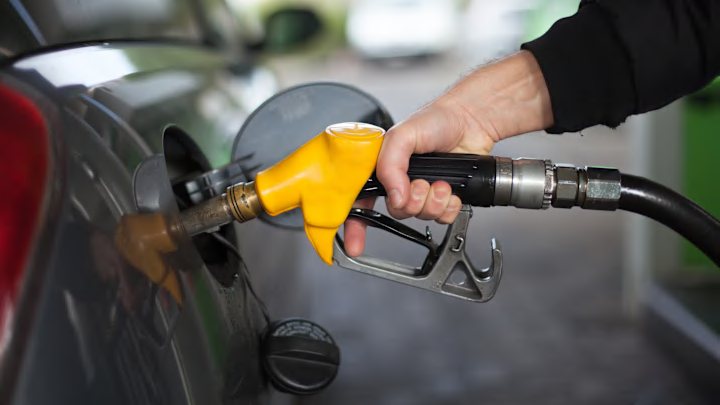New Jersey is a state that distinguishes itself in so many ways. One example of New Jersey’s unique charm may come as a surprise to visiting motorists, however, when they discover that it’s illegal to pump their own gas in the Garden State.
Until quite recently, New Jersey wasn’t the only state that didn’t allow motorists to pump their own gas. For years, Oregon drivers had to sit in their cars as well, waiting for an attendant to fill ‘er up. However, effective January 1, 2016, Oregonians in rural counties are allowed to dispense their own gasoline at night. The measure was designed to keep motorists from getting stranded in remote areas after gas station staff had gone home for the night—a very real problem in the state’s sprawling terrain. (In March 2023, the Oregon House of Representatives voted to pass a bill that would let all Oregonians—not just those in rural areas—pump their own gas.)
But let’s get back to New Jersey, a state that has made it illegal for people to pump their own gas. Why is this the case?
Enacted in 1949, the Retail Gasoline Dispensing Safety Act and Regulations banned drivers from pumping their own gas in New Jersey, and the rules are still in effect. Like so many laws, the statute claims the ban is for drivers’ own good. As it states:
“Because of the fire hazards directly associated with dispensing fuel, it is in the public interest that gasoline station operators have the control needed over that activity to ensure compliance with appropriate safety procedures, including turning off vehicle engines and refraining from smoking while fuel is dispensed.”
But the government version may not be the whole story. The passage of the act was motivated by something a little less pure than safety: money. In the 1940s, when self-service was unheard of in most of the country, a gas station owner named Irving Reingold offered lower prices to customers willing to pump their own gas. The gimmick was wildly popular and soon became a threat to competing gas stations. According to Bergen County’s The Record, “rival station owners reacted by persuading state lawmakers to outlaw self-serve,” and the state legislature made Reingold’s tactics illegal.
As more and more states around the country began to offer self-serve gas stations in the 1970s and ’80s, New Jersey stayed put. Nowadays, some politicians will even refer to the matter as a source of state identity and pride. In a 2011 radio interview, then-Governor Chris Christie said, “People in New Jersey love the idea that they’ve got somebody to pump their gas,” adding, “I don’t see that changing.”
In 2015, then-New Jersey General Assemblyman Declan O’Scanlon introduced a bill that would lift the ban. “I am offended by people that argue that New Jerseyans are mentally incapable of pumping their own gas without setting themselves on fire,” O’Scanlon said in a press statement.
O’Scanlon made one semi-concession to the old law, recommending that stations hang signs on gas pumps reminding people to turn off their engines. The recommended text seemed to mirror the assemblyman’s exasperation: “Do not, UNDER ANY CIRCUMSTANCES, set yourself on fire!!”
Despite this helpful suggestion, O’Scanlon’s bill was not to be, as then-State Senate President Stephen Sweeney blocked the vote. “I will oppose any attempt to rescind the law that has effectively served the best interests of the state’s motorists for decades,” Sweeney said in a press statement. “As long as I am Senate President, the ban on self-serve will stay in place.”
“We’ve been doing it the right way in New Jersey,” Sweeney concluded. “We should not change.”
Have you got a Big Question you'd like us to answer? If so, let us know by emailing us at bigquestions@mentalfloss.com.
A version of this story originally ran in 2016; it has been updated for 2023.
